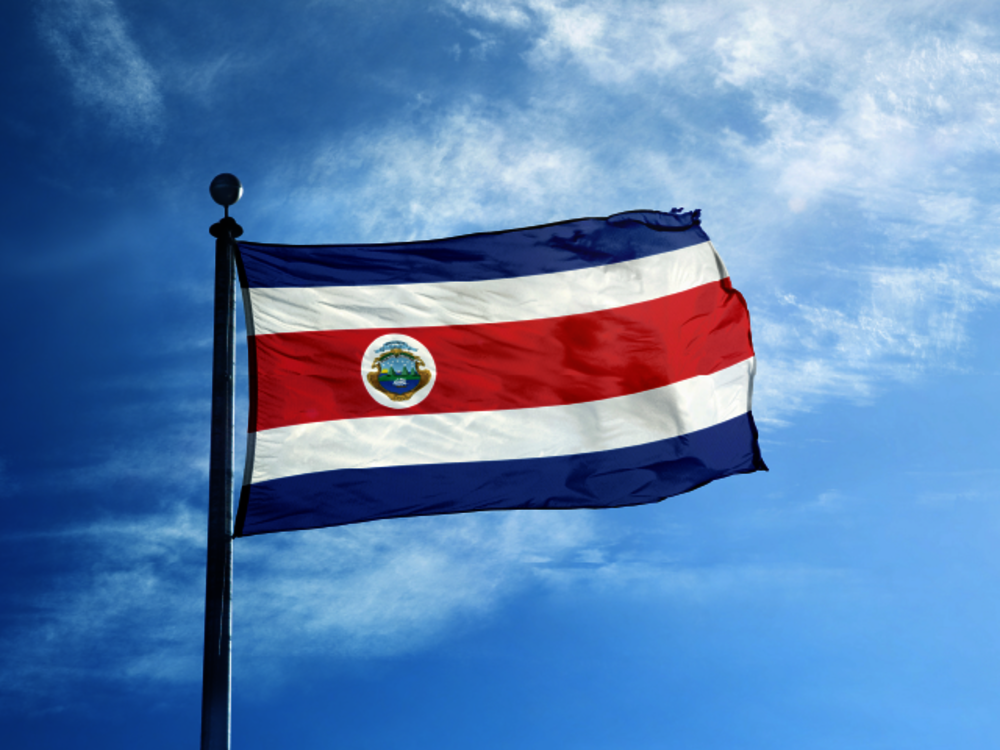CABEI continues to support Costa Rica in the development of sustainable initiatives that improve the quality of life of the country's inhabitants

The projects financed by the multilateral contributed to reactivating the country's economy in the context of the COVID-19 crisis.
San José, December 16, 2021.- Costa Rica's healthcare model has been recognized and ranked among the best in the world, and the country is a regional benchmark for sustainable policies. The Central American Bank for Economic Integration (CABEI) has contributed to these achievements, providing historic support to both the private and public sectors through technical advice and financing for flagship projects that have a great impact on Costa Ricans.
In 2021 was no exception, multiple technical cooperation, donations, and approved initiatives contributed to maintaining sources of employment in the context of the crisis caused by the COVID-19 pandemic, strengthening the health, water, and sanitation system, as well as road infrastructure, and undertaking studies and research as a basis for new projects.
"CABEI is very pleased to know that the operations we financially support in Costa Rica were not affected in spite of the crisis and that they contributed to reactivating the economy," said CABEI Executive President Dante Mossi.
In a challenging year such as 2021, the portfolio of initiatives in Costa Rica remained active. Some of them were:
Approvals 2021 | ||
Initiative | Objective | |
Financing: Regional Hospital Infrastructure Strengthening Program. Amount: $500.0 million. | Design, construction, equipment and maintenance of the Monseñor Sanabria Hospital in Puntarenas, Max Peralta Hospital in Cartago, and the William Allen Taylor Hospital in Turrialba, with a total of more than 200,000 m² of construction and more than 1,000 new beds. | |
Cofinancing from the Green Climate Fund (GCF) to CABEI's Greater Metropolitan Area Electric Train loan. Amount: $271.3 million | Of the CABEI financing approved by CABEI for US$550 million for the construction and equipment of the Electric Train, the Bank obtained co-financing from the Green Climate Fund for US$250 million, reducing the annual interest rate to 0%, increasing the term of the loan to 40 years and a grace period of up to 10 years. In addition, the Fund provided US$21.3 million for Transit-Oriented Development (TOD) projects. | |
Financiamiento: Adquisición, equipamiento y aplicación de vacunas contra COVID-19. Monto: US$80.0 millones | Vaccination of more than 3.7 million inhabitants defined as the target population, achieving a coverage of 72% of the total population.
| |
Private Sector Financing: MSME Support Facility Amount: US$35.2 million | Seven disbursements approved for the benefit of more than 2,000 MSMEs through intermediary financial institutions: Banco de Costa Rica, Banco IMPROSA S.A., Banco Promerica, COOCOCIQUE, Coopeservidores, Financiera DESYFIN. | |
Initiatives underway | ||
Financing: Strategic Road Infrastructure Works Program (CONAVI). US$430.5 million | Six of the ten works in the Program have already been completed: the bridge over the Virilla River on Route 1 (Alfredo González Flores), on Route 147 (Lindora), and on Route 32 (Saprissa), the access to the Moín Container Terminal, as well as the overpasses at the Zapote (Garantías Sociales) and Guadalupe (del Bicentenario) traffic circles; and four are progressing steadily, benefiting more than one million people: the Circunvalación Norte mega-road project, the La Bandera traffic circle, the modernization of the old bridge over the Virilla River on Route 32. | |
Financing: Hospital Infrastructure and Equipment Renewal Program (CCSS). | Dos de las tres obras contempladas en el Programa ya se concluyeron y benefician a los costarricenses: la construcción y equipamiento del Hospital La Anexión en Nicoya; así como la Torre Este del Hospital Calderón Guardia; avanza la construcción del nuevo hospital Monseñor Sanabria. | |
Non-reimbursable technical cooperations approved in 2021 | ||
For the development of a pilot plan with designs for the construction of a climate-smart greenhouse by the Ministry of Agriculture and Livestock. US$700,000 | Contract for feasibility studies for the sanitation system in Liberia. US$600,000 | |
| ||
Pre-feasibility studies for the "Bridge and Road Rehabilitation and Construction Program". US$99,750 | Technical formulation of the "Educational Infrastructure and Equipment Project for Educational Centers Located in Areas of Extreme Poverty" of the Public Education Ministry (MEP). US$99,750. | |
CABEI in Costa Rica
Costa Rica is one of CABEI's founding members since 1960, with a 10.79% shareholding and a subscribed capital of US$714.00 million. Since its incorporation, the Bank has developed multiple initiatives in different sectors such as health, energy, telecommunications, housing, and road infrastructure, among others.
During the 2016-2020 five-year period, CABEI support to Costa Rica registered US$2,433.1 million in approvals and US$1,649.2 million in disbursements, and during 2020, in one of the periods of greatest uncertainty and economic crisis it approved US$705.2 million in operations and donations to combat COVID-19 and reactivate the Costa Rican economy, demonstrating its financial soundness and reiterating its role as the effective and timely support of the Central American region.






